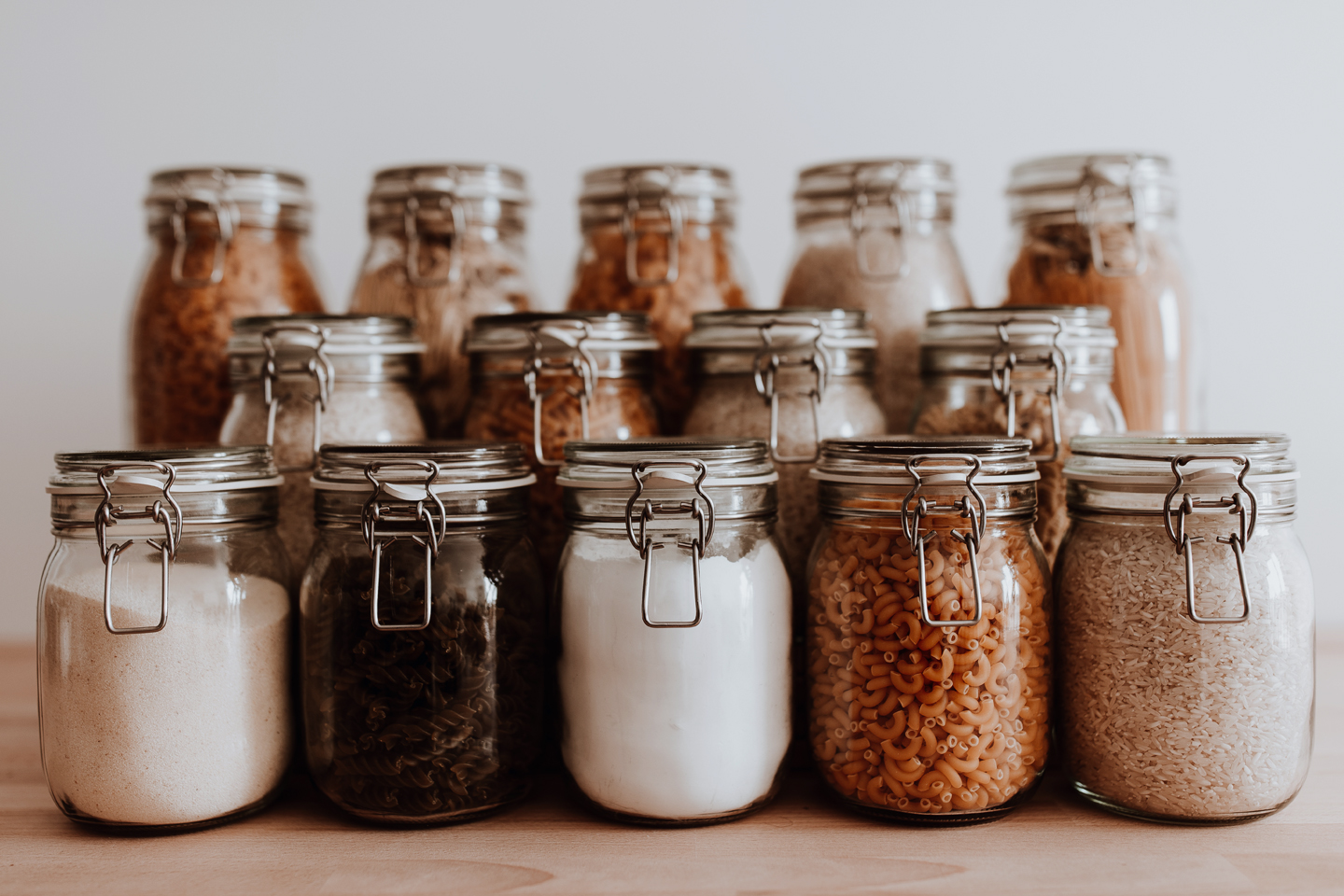Stop wasting thousands of dollars a year with these easy sustainable tips!
According to Clean Up Our Waste, each Australian currently throws away as much as 540 kilograms of waste every year.
From plastics to clothes and electronic goods, our rubbish is not only bad for the planet, it is costing our wallets big time too! Take a look at food for example: the average Australian household puts $2,200 to $3,800 of uneaten food in the bin each year!
Making proactive, sustainable choices to reduce your household's food and other waste is a great way to support the environment, and you will also have more money in your pocket.
We chatted to three Aussie eco entrepreneurs to get their top tips for a more sustainable life.
Stephanie Sanzaro, Plant Based Body
Stephanie Sanzaro is a qualified fitness trainer, mental health advocate, podcast host and plant-based recipe creator from Plant Based Body. She's also passionate about sustainability and helping others to start their eco-living journey. Her top tips are:
- Save your old jars and shop in a 'scoop and weigh' store. These stores typically have large display cupboards with various items, from nuts and seeds to laundry powder, so you can easily fill your containers. It creates less plastic waste and you only buy what you need, which often will save you money.
- Write a weekly meal plan and shopping list. This way you know exactly what ingredients to buy, you'll have less food left over and you'll save money when you refrain from buying unnecessary things.
- If you have food left over, at the end of the week, do a fridge clean out and then have a MasterChef style 'mystery box challenge', where you create something wacky and wonderful from random ingredients. This in turn helps to minimise your food wastage by never needing to throw out old food.
Lottie Dalziel, Banish
Next up is Lottie Dalziel, owner of Banish, who has been on a mission to reduce her environmental impact. After experiencing the difficulty of making the transition to a waste-free life, she is now determined to help educate others and provide everyday plastic-free alternatives.
Lottie shares these pearls of wisdom to help you start your eco-friendly reset:
- Persistence is key when starting off on your journey to living more sustainably. Don't expect it to be smooth sailing. You will forget your keep cup, get plastic packaging in an online shopping order and get a plastic straw on a night out, but it isn't the end of the world! Remember how far you've come, and that doing even something small will make a big difference.
- Tackle it one room at a time. This is an important tip that will help stop you from being overwhelmed and giving up. Just like a change in diet, you wouldn't make all of the swaps at the one time if you wanted to see lasting results. Pick a room and work your way through your home gradually making small changes.
- Purchasing power is a fantastic way to show big brands the kind of world you're looking for. Support small businesses by buying products that come without packaging over those who do, and shop with companies that support your morals, for example ethically-produced Australian businesses that use sustainable materials.
Sarah Tait, Wander Lightly
Finally, Sarah Tait from Wander Lightly is a passionate environmentalist and avid plastics pollution educator who is determined to reduce her plastic use after seeing the devastating effects it had in our ocean. She has these excellent insights around repurposing your kitchen waste.
"My biggest tip to stick with a low waste lifestyle is to make sure you adopt practices that you enjoy doing."
Sarah's personal favourites include:
- Repurposing food is one of my favourite ways to reduce waste. Coffee grounds can be used to whip up an invigorating body scrub. No need for fancy store-bought scrubs that may contain micro plastics or sneaky chemicals when you can make one yourself with simple kitchen ingredients. Making your own scrubs can save you cash and reduce your packaging. If you can, reuse some old jars to pop it in. You can also create a low tox cleaner using citrus scraps and white vinegar, perfect to use in the kitchen or bathroom, saves nasty chemicals in your home, cash and of course packaging.
- Many of our vegetable scraps are reusable. Save them for a homemade stock that can be stored in the freezer ready to add to your dishes. Stock can be a great standalone dish for dinner, just add in some fresh vegetables and a handful of noodles for a belly warming meal. It will make each vegetable go further and save you money.
- If you've made your stock but still have some leftover food scraps, composting or using a worm farm is a vital next step reducing your waste. You can even look at options like sharewaste if you live in an apartment or find composting yourself a bit too tricky.
These women prove that although it can seem like a big job, starting small and choosing to change one thing at a time will ensure you are living the eco-friendly life in no time!
The opinions expressed in this article are the opinions of the author(s) and not necessarily those of Resimac.



 Login
Login

